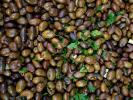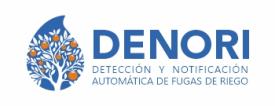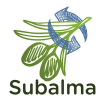
C-OLIVAR Operational Group: Validation of an innovative methodology to capitalize on carbon accumulation practices in olive groves
- Type Operational group
- Status In progress
- Execution 2023 -2024
- Assigned Budget 299.900,00 €
- Scope Autonómico
- Autonomous community Andalucía
- Project website GO C-OLIVAR
The ultimate goal of the C-OLIVAR project is to develop and validate the methodological approach to calculating carbon credits in olive groves and to disseminate strategies to optimize organic carbon accumulation in a wide range of olive grove types, including tools for their evaluation.
Through this objective, C-OLIVAR aims to support regional and national governments, as well as olive growers, in implementing management strategies that result in greater accumulation of organic carbon, and therefore a greater contribution to climate change mitigation and the decarbonization of the olive sector, and the conversion of this carbon into credits exchangeable for euros on the voluntary market.
The main expected results are:
- Development of a methodological guide for calculating carbon credits in olive groves.
- Development of a digital tool available to technicians and farmers to guide decision-making in increasing soil organic carbon levels and improving the natural capital of olive groves at the farm level.
- Increased accumulation of organic carbon and ecosystem services (biodiversity, soil, water) and the circular bioeconomy in the network of collaborating farms and in other farms of owners who participate in dissemination actions.
- Creation of outreach materials aimed at promoting: i) the implementation of management practices that lead to an increase in the amount of organic carbon, and ii) the development of a voluntary carbon credit market.
- Validation of a methodology for calculating carbon credits in olive groves.
- Evaluation of olive grove management practices in the accumulation of organic carbon in the soil.
- Analysis of space-time monitoring systems for obtaining information.
- Development of management protocols to optimize organic carbon accumulation.
- Dissemination and promotion of combinations of management practices that result in the accumulation of organic carbon in olive groves, in addition to improving soil fertility and biodiversity.
The quantification of carbon credits in olive groves must be based on a robust, easy-to-use calculation methodology adapted to olive groves and allowing for the integration of sensor and digitalization techniques.
The C-OLIVAR project was built on this need. Its ultimate goal is to develop and validate the methodological approach to calculating carbon credits in olive groves and to disseminate strategies to optimize organic carbon accumulation in a wide range of olive grove types, including tools for their evaluation.
The project seeks not only to benefit local farmers with more sustainable and profitable practices, but also to generate valuable data that can be applied to other olive-growing regions, promoting agricultural sustainability globally.
- Coordinator/entity name: ASAJA-Sevilla
- Postal address: Av. San Francisco Javier, 9, 41018, Seville
- Coordinator/entity email: info@asajasevilla.es
- Telephone: 954651711
- ASAJA-Sevilla
- ASAJA-Sevilla







